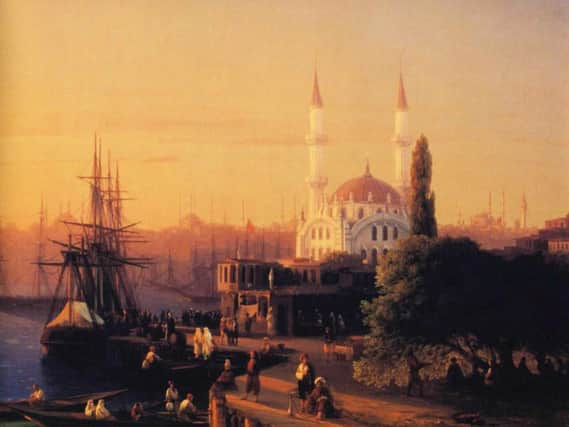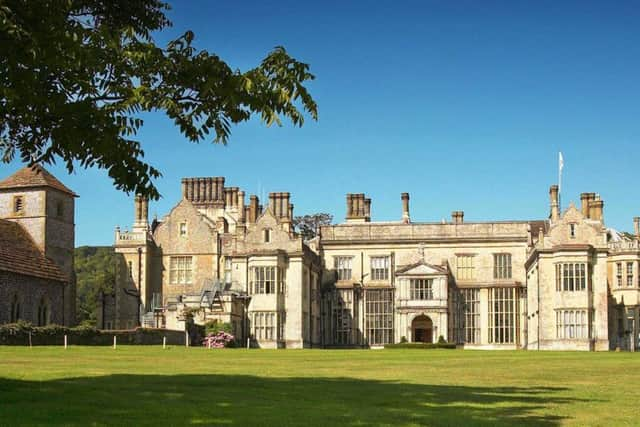Sussex MP who took up piracy ended up being captured by Turks


The story begins with Thomas Shirley who was born around 1542. In his early life he enjoyed good fortune and royal favour that earned him a knighthood in 1573. Three years later he was made High Sheriff of Sussex and Surrey.
Shirley embarked on a major rebuilding of the family home in Wiston, turning it into a vast country house at enormous expense. Within just a few years he found himself in parlous financial straits. In 1586 Elizabeth I appointed Sir Thomas Treasurer-At-War to an English army in the Netherlands assisting the Dutch in their struggle to end Spanish rule. No doubt the Queen was giving Sir Thomas a helping hand but it sorely backfired when he used state money to bankroll his personal investments. He ended up in massive debt to the Crown.
Advertisement
Hide AdAdvertisement
Hide AdSir Thomas had been elected as an MP in 1584, a post he held for many years. A year after Elizabeth’s death in 1603, so pressing had his debts become that he invoked parliamentary privilege in an attempt to avoid prosecution. Even so he ended up in Fleet Prison. His fellow MPs - no doubt anxious to avoid a similar fate for themselves - demanded he be released. Eventually Sir Thomas was freed.


Parliament went on to pass legislation that confirmed immunity from arrest for MPs, but also gave creditors the right to recover what they were owed when the debtor quit Parliament. This measure became known as “Sir Thomas Shirley's Case”.
Thomas Shirley had married Anne Kempe in 1559 and the couple had no less than12 children, three of whom died in infancy. Wiston House had been sequestered in 1602, although Sir Thomas was allowed to live there for the rest of his life. His three sons, Thomas, Anthony and Robert, would have become aware of their father’s financial folly and realized quite young that there would be little to inherit. This knowledge may explain why the trio would all become bold and intrepid adventurers.
The eldest, Thomas, was born in 1564 and aged just 20 became MP for Steyning. He accompanied his father to the Netherlands on military service and later saw action in Ireland where he was knighted in 1589. Two years later he married in secret one of the Queen’s maids of honour; when Elizabeth learnt of it she put him in prison for six months. In 1593 he returned to the Low Countries as a captain.
Advertisement
Hide AdAdvertisement
Hide AdMoney troubles weighed heavily on Thomas Junior to the extent that in 1598 he decided to become a privateer and plunder Spanish merchant ships, an activity tolerated by the English authorities. Indeed, in 1599 he became captain of the Queen’s ship, “Foresight” and it’s believed he employed the vessel in his pirate trade. One prize was a ship from San Domingo carrying sugar worth nearly £5,000. In 1600, Sir Thomas incurred the wrath of the Admiralty after seizing a German ship carrying a cargo for Dutch merchants. A family friend, Lord Cobham, interceded and got the pirate off the hook.


In 1601 Sir Thomas Senior had need of his son’s seat of Steyning. The young man gave it up and then was elected MP for both Bramber and Hastings. At the end of 1602 he set his sights on the Eastern Mediterranean hopeful of rich pickings in the Ottoman Empire. Instead he came a cropper on the little island of Kea, was captured by the Turks and taken to Constantinople.
Upon hearing of Shirley’s incarceration, King James I requested that Sultan Mehmed III release him. This didn’t happen until a handsome ransom was paid. Sir Thomas returned home via the Kingdom of Naples where he noted the economic acumen of the city’s large Jewish population.
Shirley eventually got back to England but there was no “happy ever after” homecoming for the privateer. The powerful English Levant Company wanted him arraigned for interfering with their Mediterranean trade interests. They charged that he had "over-busied himself with the traffic of Constantinople”. He was sufficiently well connected to escape heavy punishment.
Advertisement
Hide AdAdvertisement
Hide AdIn 1607 Shirley submitted an extraordinary document to James I in which he advocated inviting the English Jewish community to move wholesale to Ireland where, quoting the Naples example, “they would quickly make that country very rich. And Your Majesty’s revenue in Ireland would in short time rise to almost equal the revenue of England.” He added that persecuted Jews living in Portugal would also need little coaxing to move to Ireland.
No doubt Sir Thomas was hoping his initiative would reap a financial reward. However, his proposal went unheeded. In August 1611 he was declared insolvent. Upon the death of his father in 1612, the badly dilapidated house at Wiston had to be sold off. There were no more pirate adventures for Sir Thomas Junior but he was elected MP for Steyning in 1614 and again in 1621. It is believed that Shirley died on the Isle of Wight in 1630.
Sir Thomas Shirley’s eldest son certainly led a remarkable life full of incidents that would not be out of place in an episode of “Black Adder”. Yet there were three sons in all and the lives of Anthony and Robert turned out to be every bit as colourful and action-packed as that of their older brother. The Shirley family story continues next week.